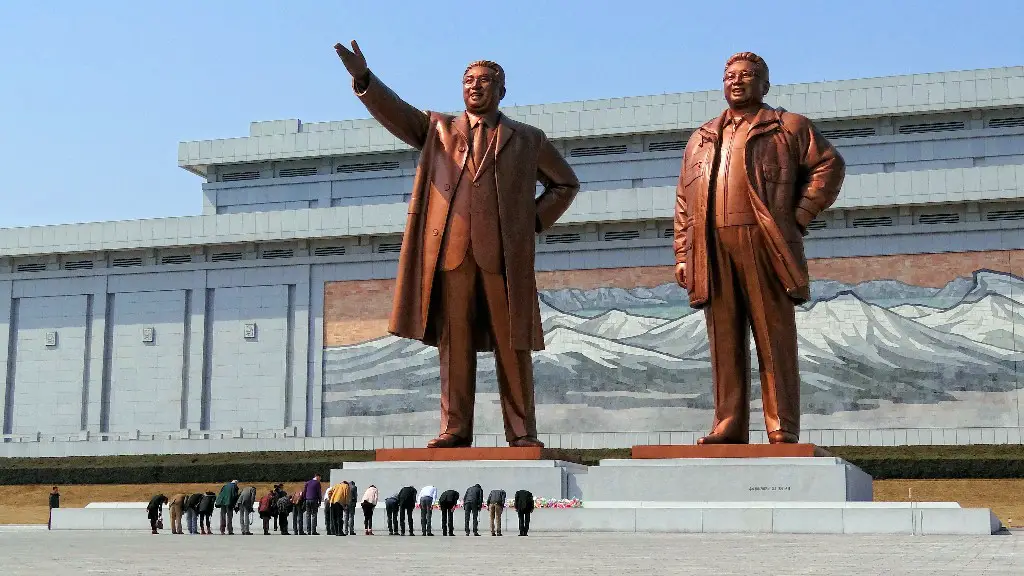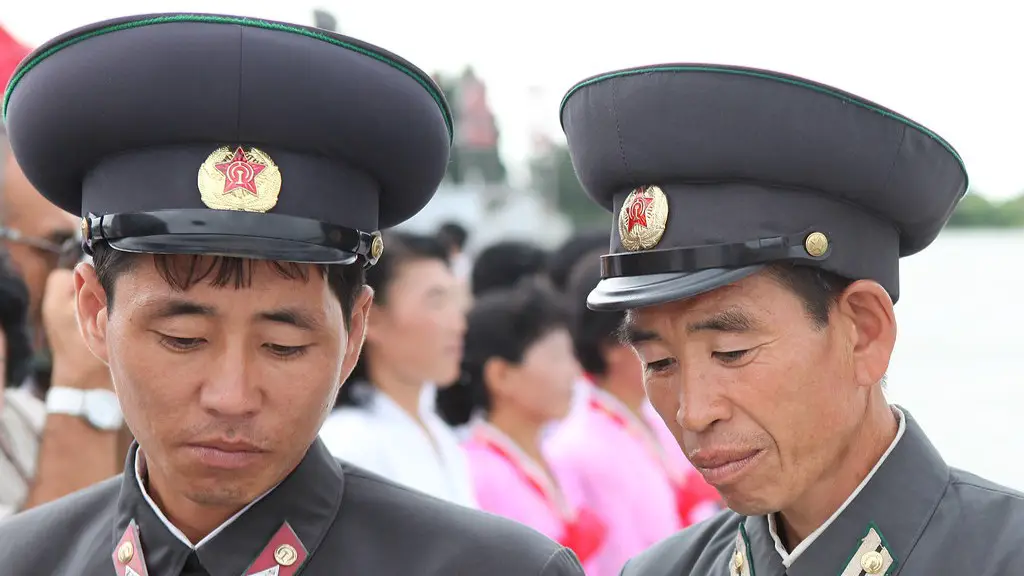The Status Quo
The United States and North Korea have been in a state of tension since the end of the Korean War in 1953. Relations between the two countries have been at an all-time low since the election of Donald Trump and have taken a vigorous turn over the last couple of years, as North Korea has pushed ahead with its development of nuclear weapons, long-range ballistic missiles, and other belligerent activities.
In recent months, North Korea has accelerated its nuclear weapons tests, causing alarm among the international community and raising the specter of a direct conflict with the United States. Despite ongoing diplomatic efforts, the two countries have failed to reach agreement on limiting North Korea’s nuclear and ballistic missile development, which the United States believes is a threat to global stability and peace.
This has left experts divided over how much of a danger North Korea poses to the US and its geo-political interests. Dr. Jeffrey Lewis, a nonproliferation expert at the Middlebury Institute of International Studies in California, believes that North Korea is unlikely to initiate a war with the US and prefers a strategy of “brinkmanship and deterrence”. He argues that North Korea is only interested in ensuring its survival and would not launch a first strike against the US.
Dr. Philipp Bleek, a professor of international security studies at Tufts University, is less optimistic. He believes that North Korea does pose a direct threat to US security and that the government must act to contain its nuclear ambitions before it can become an existential threat. Bleek points out that North Korea has “shown a willingness to use force to push its agenda, most recently with the sinking of a South Korean naval vessel in 2010.”
The Impact on South Korea
The situation in the Korean peninsula is of particular concern to its immediate neighbors, especially South Korea, which borders the North and has a long history of strained relations. As tensions rise between the US and North Korea, there are increasing concerns that a regional conflict could break out that would have devastating consequences for South Korea.
To address this, the US has deployed its military forces in South Korea to deter a North Korean attack. Moreover, the US and South Korea have signed mutual defense treaties and conducted joint military exercises to ensure the security of the South Korean people. However, some experts argue that these efforts have not been enough to deter a determined North Korean attack.
Dr. Lee Jae-hyon, professor of International Relations at Korea University in South Korea, suggests that the US must be prepared to mobilise a more robust deterrence strategy should North Korea pursue its belligerent activities further. He believes that “this would provide a much-needed deterrent effect against North Korea, as well as reassurance to South Koreans that the US will take appropriate actions to protect them in the event of any aggression.”
Moreover, South Korea is continuing to push for a diplomatic solution to the crisis, with President Moon Jae-in making a number of public statements seeking to de-escalate the situation. President Moon has proposed the suspension of all nuclear and ballistic missile activities by the North and immediate negotiations with the United States and its allies.
Economic Sanctions
The United States has also imposed economic sanctions on North Korea in an attempt to pressure the country to abandon its nuclear weapons program. However, many experts argue that sanctions have limited effectiveness, as North Korea does not rely heavily on international trade for its economic survival and has instead resorted to self-dependent approaches for obtaining resources.
Although the sanctions have caused some economic hardship, it appears that the North Korean leadership is willing to bear the burden in order to pursue its nuclear ambitions. Some experts believe that sanctions could actually be counter-productive and push North Korea closer to becoming a nuclear state. Dr. Adam Mount, a senior fellow at the Federation of American Scientists, cautioned that “U.S. policy should focus on incentivizing North Korea to moderate its nuclear activities, rather than relying on coercive measures that could potentially lead to more dangerous outcomes.”
This view is echoed by Dr. Joel Wit, a senior lecturer and director at the US-Korea Institute at Johns Hopkins University, who believes that “sanctions are unlikely to stop North Korea from pursuing its nuclear ambitions, but could further complicate the situation and make it even harder to reach a diplomatic solution.”
International Response
In recent months, the international community has been taking a more active role in trying to de-escalate the situation in the Korean peninsula. The United Nations has passed a series of resolutions condemning North Korea’s nuclear and missile development, and is seeking to exert economic and diplomatic pressure on the country.
Leaders from countries including China, Russia, and Japan have publicly urged North Korea to abandon its weapons program and seek a peaceful resolution to the crisis. China, North Korea’s largest trading partner, has tightened restrictions on trade with the country, while Russia has sought to use its influence in the region to promote dialogue between the US and North Korea.
The European Union has also voiced its support for a de-escalation of tensions and has proposed a regional security agreement involving the US, North and South Korea, China, Japan, and Russia. The objective of the agreement would be to reduce the risk of conflict and create a framework for a peaceful resolution to the crisis.
The Role of the US
The US has taken a leadership role in trying to resolve the situation and has sought to work with the international community to find a diplomatic solution. President Trump has expressed his willingness to engage in direct dialogue with the North Korean leadership and has recently met with North Korean representatives in Washington. However, the talks have failed to make any progress so far, with the two sides failing to reach any agreement.
In the meantime, the US government has continued its efforts to contain North Korea’s nuclear ambitions through diplomatic, economic, and military means. The Pentagon has boosted its military presence in the Pacific region and the US Navy has conducted freedom-of-navigation operations near North Korea’s territorial waters in an attempt to demonstrate its commitment to regional security.
The US is also pushing North Korea to halt its missile tests and is urging the international community to boycott North Korean products and impose further sanctions on the country. The US State Department recently announced a travel ban on North Koreans seeking to visit the US, and is considering additional measures to press North Korea to comply with UN resolutions and suspend its weapons programs.
The Rising Tensions
The current situation between the US and North Korea has reached a fever pitch, with no sign of a diplomatic resolution in sight. North Korea has repeatedly rejected calls from the US and the international community to abandon its nuclear ambitions, and tensions in the region continue to mount.
Many analysts believe that the only way to avert a potential conflict is through meaningful dialogue and a negotiated settlement, but the prospect of such an agreement appears remote at the moment.
The onus is now on the US to devise a strategy to resolve the crisis and bring about a peaceful resolution. It remains to be seen how the US government will respond to the rising tensions and address North Korea’s nuclear ambitions.




